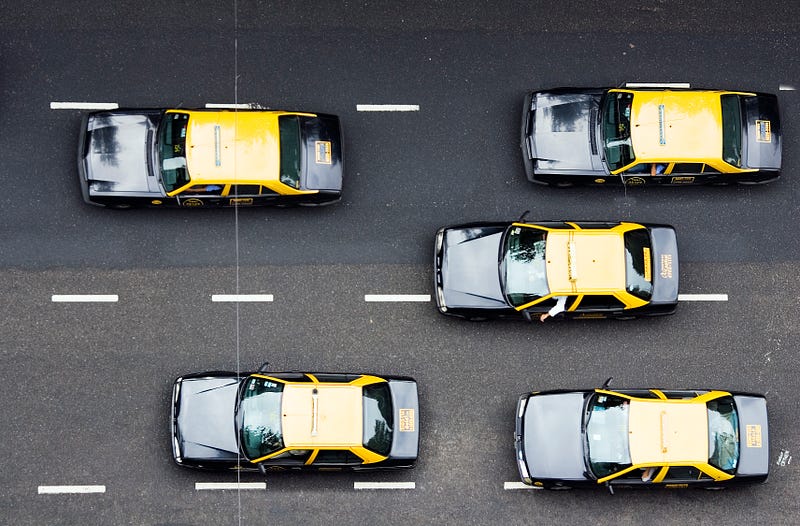Taxis, disrupted
Taxis have been doing the same thing for years. Pick up a passenger, hear the destination, take the passenger there, get paid. It’s pretty simple and it hasn’t evolved much in decades.
 Taxis in Buenos Aires are transit’s public enemy number 1
Taxis in Buenos Aires are transit’s public enemy number 1
Last month Uber launched in Argentina and disrupted the whole business. Taxis were obviously against the whole thing.
In the long run, Uber and other services like Lyft will become your preferred alternative. You will only hail a cab on the street when you can’t get an Uber or a Lyft.
Why?
Because the whole experience is more enjoyable and usually more secure. You can pay with your credit card. You have a clear idea of the fare. And if a driver misbehaves, you can easily report him.
Taxis never had to provide a better experience because there was no real competition. Until Uber launched in Buenos Aires, you could only get a taxi or a remise (private car service) to quickly drive you to places.
Just because you don’t need to innovate, it doesn’t mean you shouldn’t.
That’s the beauty of competition. It forces the players in the game to become better players, which is great for customers.
Hopefully the city government and Uber will find a way to legalize this business model and we will have better alternatives to get from point A to point B.
Taxis will have to adapt or die. It’s called survival of the fittest. When this finally happens, passengers will only benefit from this disruption.